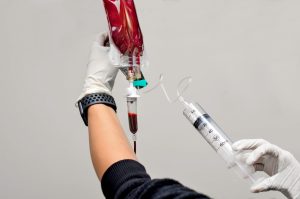Enhancing Health with IV Therapy: Benefits, Procedures, and Insights

Understanding IV Therapy
What is IV Therapy?
Intravenous (IV) Therapy is a medical practice that involves administering fluids, electrolytes, medications, and nutrients directly into the bloodstream via a vein. This method allows for immediate access to the circulatory system, which can be particularly beneficial in clinical settings. By bypassing the digestive system, IV Therapy ensures that the body receives nutrients in their most effective form, offering rapid and effective results.
The procedure is typically performed by healthcare professionals who can monitor any reactions and adjust treatments as necessary. It is particularly popular in healthcare for hydration, medication delivery, and nutritional support. In recent years, it has gained popularity outside of hospital settings for wellness, hydration, and even cosmetic purposes.
Common Uses of IV Therapy
IV Therapy is utilized for various medical and wellness applications, including but not limited to:
- Hydration: Rapidly rehydrating patients suffering from dehydration due to illness, heat, or exertion.
- Nutritional Support: Providing critical vitamins and minerals, bypassing digestive issues for those unable to absorb nutrients effectively.
- Medication Delivery: Administering medications such as antibiotics, antivirals, and pain management drugs directly into the bloodstream.
- Emergency Treatments: Offering immediate solutions during medical emergencies like severe allergic reactions or shock.
How IV Therapy Works
The process of IV Therapy involves the insertion of an intravenous catheter into a vein, often in the arm. This catheter is connected to a bag of fluid or medication that is delivered through a controlled drip. The healthcare provider manages the rate of flow for safety and effectiveness.
Once the IV is set up, the fluids or medications enter the bloodstream almost instantly, allowing for immediate physiological effects. This speed of administration is particularly beneficial in critical cases where time is of the essence.
Benefits of IV Therapy
Immediate Nutrient Absorption
One of the defining advantages of IV Therapy is the immediate absorption of nutrients. Traditional oral supplements pass through the digestive system and can lose potency or efficacy during this process. In contrast, IV Therapy delivers nutrients directly to cells, enabling swift uptake and utilization. This is particularly beneficial for individuals who have digestive issues or chronic illnesses that impair nutrient absorption.
Enhanced Hydration
IV Therapy can rapidly hydrate individuals, making it an effective treatment for dehydration caused by heat, illness, or rigorous exercise. This method is beneficial for athletes or individuals who require optimal hydration levels for performance. The fluids administered through IV Therapy can include not only water but also electrolytes that are essential for promoting cellular function and maintaining overall health.
Boosted Immune Function
With the rise of wellness trends, many people have turned to IV Therapy to boost their immune systems. Vitamin infusions, particularly those high in vitamin C, can enhance the body’s natural defenses. Research indicates that high doses of certain vitamins have antiviral and antibacterial properties, providing an important protective measure, especially during flu season or global health crises.
Types of IV Therapy Treatments
Vitamin Infusions
Vitamin infusions are among the most popular forms of IV Therapy. They can include a variety of vitamins such as vitamins B, C, and minerals like magnesium and calcium. Each infusion may be tailored to meet an individual’s specific health needs. For instance, a person recovering from surgery may benefit from higher vitamin C levels for healing, while someone with chronic fatigue may find B vitamins helpful for energy levels.
Hydration Therapy
Hydration therapy is primarily concerned with restoring fluid balance in the body. It involves administering saline solutions, often enriched with electrolytes or vitamins, to rehydrate patients quickly. This is particularly effective for individuals recovering from illnesses that result in fluid loss, such as gastrointestinal issues, or those who are passive for extended periods.
Customized IV Therapy
Customized IV Therapy allows healthcare providers to tailor treatments to the individual preferences and health conditions of patients. This can include specific combinations of vitamins, minerals, and hydration solutions aimed at maximizing therapeutic outcomes. By customizing infusions, practitioners can address a range of issues, from chronic fatigue to athletic performance recovery.
What to Expect During an IV Therapy Session
Pre-Treatment Consultation
Before undergoing IV Therapy, patients typically will have a pre-treatment consultation. This session involves a thorough assessment of health history, allergies, and current medications. The provider will discuss the different types of IV therapies available and recommend the best options tailored to the patient’s needs. This step is crucial for ensuring the safety and effectiveness of the treatment.
The Administration Process
During the actual administration of IV Therapy, patients can expect a comfortable setting, often in a reclining chair. A healthcare professional will insert the IV catheter and connect it to the fluid or medication. The treatment duration can vary, typically ranging from 30 minutes to over an hour, depending on the type and complexity of the infusion. Patients are usually monitored throughout the process to ensure they are responding well and to manage any adverse effects that may arise.
Post-Treatment Care Tips
After the IV Therapy session, it is essential to follow any post-treatment care tips provided by the healthcare provider. This may include recommendations on hydration, dietary choices, and activities to avoid. Patients may feel immediate benefits post-therapy but should also monitor how they feel in the following days, noting any significant changes that should be shared with their providers.
Considerations and Safety of IV Therapy
Who Should Consider IV Therapy?
IV Therapy may be suitable for a wide range of individuals, including those experiencing chronic health issues, athletes looking for recovery aids, and anyone needing fast hydration or nutritional support. However, it is crucial to approach any medical treatment with careful consideration and professional guidance. Individuals with specific medical conditions, such as kidney disease or heart issues, should consult healthcare providers before participating in IV Therapy.
Potential Risks and Side Effects
Though generally safe, IV Therapy does carry some risks. Potential side effects may include infection at the injection site, bleeding, and allergic reactions to the fluids or medications administered. Patients should be aware of these risks and report any unusual symptoms during or after treatment to their healthcare provider. Proper sterilization techniques and experienced practitioners can minimize these risks significantly.
Questions to Ask Your Provider
Before undergoing IV Therapy, patients should prepare questions for their healthcare providers to ensure a comprehensive understanding of the treatment and its implications. Key inquiries might include:
- What specific nutrients or medications will be included in my IV Therapy?
- How often should I receive this therapy to see benefits?
- What are the potential side effects, and how will they be managed?
- Are there any contraindications based on my health history?
Having a clear and open dialogue with healthcare professionals helps ensure that patients make informed decisions about their care.
As demand for wellness services continues to rise, IV Therapy stands out as a versatile and effective option for many individuals in pursuing optimal health. By understanding its benefits and applications, individuals can make informed decisions about incorporating this innovative treatment into their health regimens.






